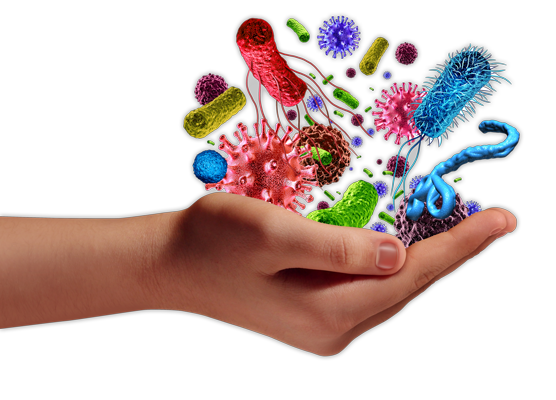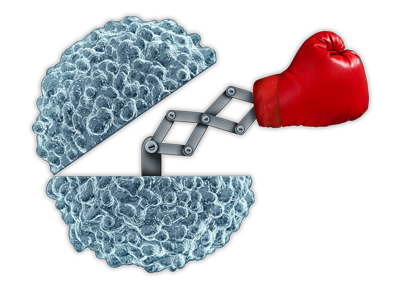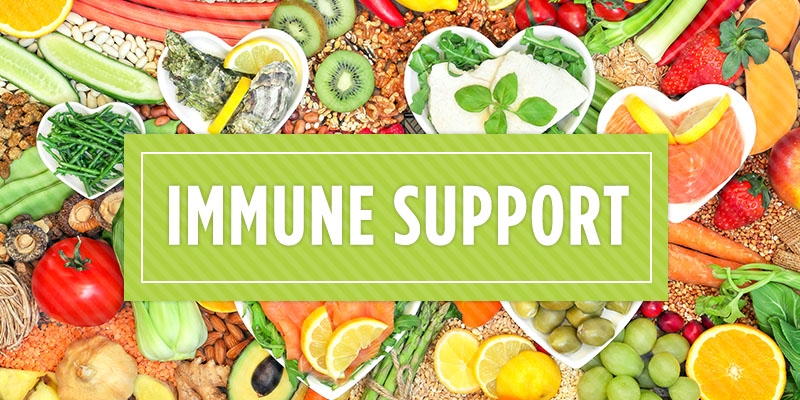Your immune system defends you against pathogens – microorganisms that make you ill. How your immune system responds to germs and pathogens determines whether you get sick and how long you feel bad. So, can you ‘boost’ your immune system to make sure that it can keep you from getting sick? Let’s start with understanding how the immune system works.
How does your immune system work?

Your immune system recognizes ‘pathogens’ – bacteria, viruses, or other microorganisms that do not belong in your body and could potentially cause you illness. The goal is for the immune system to rid your body of pathogens in order to restore your body to normal function.
When you feel sick, the symptoms that you feel are usually the result of your immune system doing its job – fever, congestion & runny nose or eyes, vomiting, and feeling tired, while all unpleasant, are immune responses to rid your body of pathogens. You WANT your immune system to respond in these ways to prevent infections from spreading and getting worse.
Can you ‘boost’ your immune system?

The first question to address here is whether you actually need to boost your immune system. Despite common misconceptions about strengthening your immune system, you don’t actually want your immune system to respond aggressively all the time.
You need your immune system to be balanced – responding to germs that can make you sick, like e.coli or the flu, but also recognizing cells that are part of your body or providing vital nutrients to your body. Autoimmune disorders come from overactive immune systems, and can be just as detrimental to your overall health as too little immune response.
So what can you do to keep from getting sick?

The best way to prevent illness is to live a healthy lifestyle. Yep – good old diet and exercise are going to make the biggest impact on your overall health and your body’s ability to respond to illness. Avoiding smoking, drinking alcohol in moderation, eating a diet with plenty of fresh fruits & vegetables, and getting regular exercise are the best ways to boost your health.
In addition, making sure you drink enough water and get enough sleep both have an impact on how well your body can respond to potential illness.
Practicing good hygiene is another crucial way to prevent illness. As we’ve all learned in 2020, it’s important to follow basic hygiene principles, such as avoiding contact with sick people, and washing your hands properly and frequently. And if you are sick, you should stay home – both to rest so that you can recover faster, and to prevent spreading illness to others. Getting your flu shot and other recommended vaccines also helps to prevent illness.
What about vitamins?

There is little scientific evidence to prove that taking vitamins and supplements can improve the function of your immune system. If you are concerned that you are deficient in certain vitamins and minerals, the best way to increase these in your body is to eat them in the form of whole foods.
Micronutrients that have been found to play a role in your immune system include:
- Vitamin B6 – can be found in bananas, green vegetables, potatoes, salmon, tuna, and chicken
- Vitamin C – can be found in citrus fruits, strawberries, tomatoes, broccoli, and spinach
- Vitamin D – can be found in eggs (especially yolks), liver, red meat, oily fish such as salmon, sardines, herring, and mackerel, mushrooms grown outdoors, and can be created by the body when exposed to direct sunlight
- Vitamin E – can be found in spinach and nut & seed products, including sunflower seeds & sunflower oil, peanuts & peanut butter, and almonds
Most importantly, if you are frequently sick and concerned about your immune function, you should see your physician. Your immune system is an indicator of your overall health. Together with your physician, you can explore reasons for a decline in health and develop a plan to improve your wellbeing.

